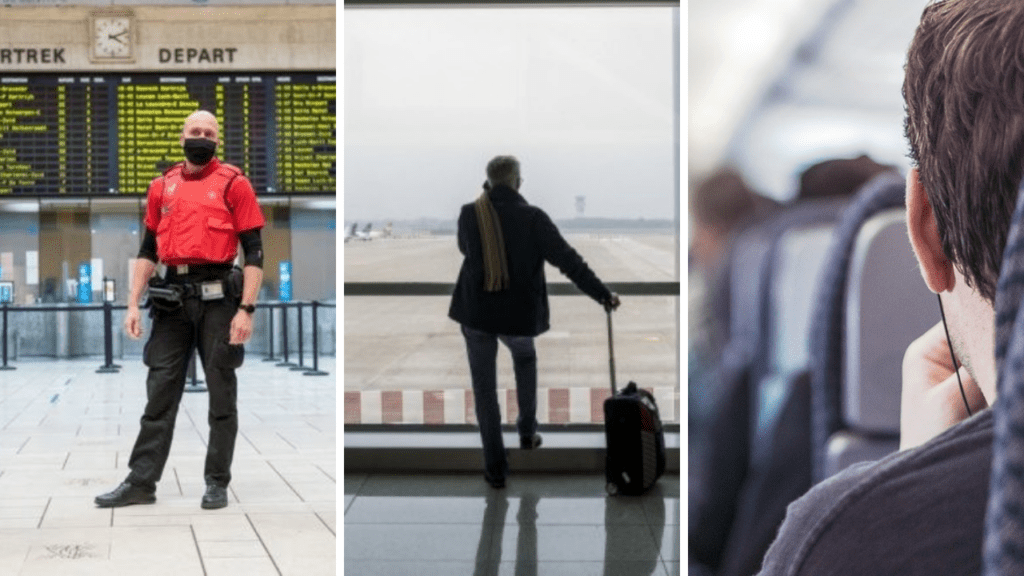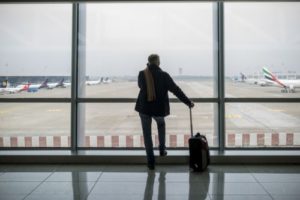The big news of today, and of this week, will be moving in not in miles but in inches. That, however, is where we come in.
So where are we at with travel in the face of increasing levels of infection across places we can already visit.
To put it simply, we're getting there.
Quarantining arrivals from high-risk countries continue to be the plan for Belgium. All three regions have said they will seek ways to enforce a quarantine on travellers returning from high-risk areas, with Brussels hinting to the possibility of fines.
As for what those ways are, however, the country is struggling. When we know, you will.
With so much information, and so little time to catch up before it potentially changes again, here are some of the top stories from around the country to get you up to speed.
Belgium in Brief is a free daily roundup of the top stories to get you through your lunch break conversations. To receive it straight to your inbox every day, sign up below:
1. Foreign Affairs announces new countries accessible to Belgian travellers
Foreign Affairs updated on Tuesday the list of countries where Belgian citizens are allowed to travel for non-essential journeys, and under what conditions.
Among the list of 31 EU+ countries (which includes the Schengen zone, the United Kingdom and the European Union), 20 are coded “green”, seven “orange” and four are still inaccessible.
The travel notices for each destination can be consulted on the website of Foreign Affairs. Read more.
2. Brussels will quarantine high-risk returnees
Brussels and Wallonia will put travellers returning from areas with new flare-ups of the coronavirus on a mandatory quarantine.
Health authorities in Brussels said Wednesday that they would follow advice issued by the Risk Management Group (RMG) on Monday to quarantine and test high-risk returnees, mimicking a move by Flanders.
Walloon Minister-President Elio di Rupo had on Tuesday also said that it was “a given” that high-risk returnees would be expected to quarantine at home. Read more.
3. Brussels Pret A Manger safe from company closures
Brussels branches of British Sandwich chain Pret A Manger will not be impacted by the company’s decision to close certain shops to make up for losses during the coronavirus.
While the high street chain announced on Tuesday that it would have to close 30 outlets in the UK, The Brussels Times has learned that there is no such plan to close the two stores that opened in Brussels in 2019. Read More.
4. Not wearing a mask on Belgian trains will face fines this summer
The police and Securail are stepping up their targeted checks on trains and in stations to make sure everyone respects the obligation to wear a face mask.
Since the wearing of a face mask became compulsory on public transport and stations on 4 May, SNCB’s checks were mostly meant to raise awareness among travellers.
After two months of intensive awareness-raising, it is time to start enforcing the targeted checks, the company announced. People not wearing a mask will be fined, according to the police. Read More.
5. Congolese President travels to Belgium on a ‘private visit’
A 10-day private visit to Belgium by Congolese President, Félix Tshisekedi, will see the leader speaking with Belgian and European politicians in the coming days.
Tshisekedi – who is also here to undergo a medical checkup – arrived on Sunday on his flight from Congo, and comes the week after King Philippe became the first royal to publicly apologise for the atrocities committed by the Belgian regime in colonial Congo. The apologies were made on the 60th anniversary of Congo’s independence. Read more.
6. New coronavirus infections in Belgium stop decreasing
An average of 85.1 people per day tested positive for the new coronavirus (Covid-19) in Belgium, according to figures by the Federal Public Health Service on Wednesday.
The total number of confirmed cases in Belgium, since the beginning of the pandemic, is 62,123. The total reflects all people in Belgium who have been infected, and includes confirmed active cases as well as patients who have since recovered, or died from the consequences of the virus. Read more.
7. WHO acknowledges that ‘evidence is emerging’ of airborne Covid-19 transmission
The World Health Organisation (WHO) acknowledged on Tuesday that “evidence is emerging” on the airborne transmission of Covid-19, after a group of 239 international scientists sounded the alarm on this mode of contagion.
“We recognise that evidence is emerging in this area and therefore we need to be open to this possibility and its implications, as well as the precautions that need to be taken,” said Benedetta Allegranzi, a WHO official, at a virtual press conference. Click here.
Jules Johnston
The Brussels Times




